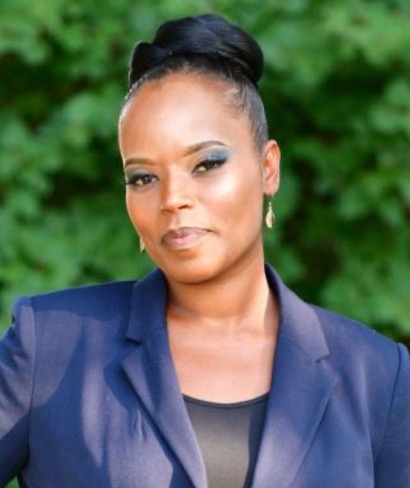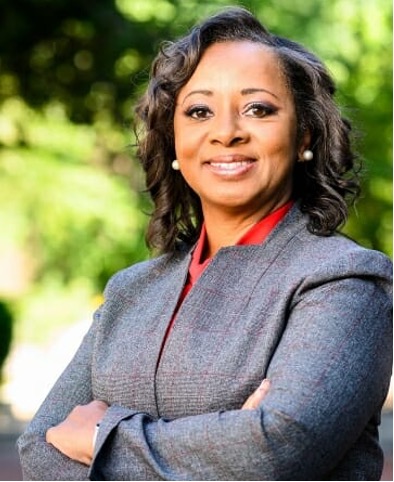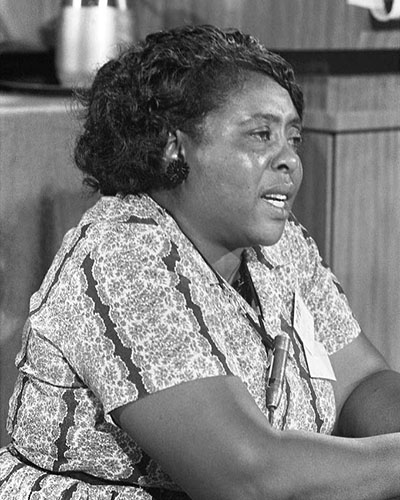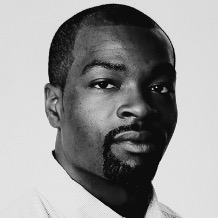Having trouble viewing this email? | View in browser

February 2022
In honor and celebration of Black History Month: a spotlight on Miles Davis
Miles Davis: his vulnerability was disarming. His intimate, improvisational style created a connection to his art that expressed pleasure without sentimentality. It was the unique combination of expression in his music that evoked an emotional response for those who understood the message he was communicating. Davis believed if you want to be a person of creation, you must be a person who will embrace and accept change. To evolve, you must imagine what you need and go where no one has gone before you. You must expand the conceptualization and practice it. And finally, you must be open to the possibility of excellence.
Netflix Documentary Film:
"The Birth of the Cool"
Miles Davis is considered one of the most influential and acclaimed icons in the history of jazz and 20th century music. Over six decades, arriving on the national scene in 1945, Davis made music that grew from an uncanny talent “to hear the future” and a headstrong desire to play it. Davis forged ahead, trusting and following his understanding of the world and his musical instinct. In doing so, he became the standard bearer for successive generations of musicians and shaped the course of modern improvisational music more than a half-dozen times.
Originally from East St Louis, the determined teenager convinced his parents to send him to New York’s famed Juilliard School of Music in 1944, a ploy allowing him to locate and join the band of his idol, bebop pioneer Charlie Parker. His sensitive, soulful, streetwise exterior later earned him the title “Prince of Darkness.” It wasn’t long before the headstrong, young arrival grew from sideman to leading his own projects and bands―from the restrained, classical underpinning of the famous “Birth of the Cool” group (his first foray with arranger Gil Evans), to the blues-infused hardbop anthem “Walkin’,” to his first famous quintet (Coltrane, Chambers, Red Garland, Philly Joe Jones) with whom his recordings on muted trumpet helped him develop a signature sound that broke through to mainstream recognition.
His group shifted and morphed through the early ‘60s until Davis settled for a four-year run with his classic quintet, a lineup that is still hailed today as one of the greatest and most influential jazz groups of all time. Their collaborations traced a pattern of unparalleled growth and innovation in jazz, and had Davis stopped his progress at that point, he would still be hailed as one of the greatest pioneers in jazz history. But his creative momentum from the end of the ‘60s into the ‘70s would not let up. He was listening to the world around him—the amplified explosion of rock bands and the new, heavy-on-the-one funk of James Brown and Sly & The Family Stone.
By the end of 1975, Davis was tired―and sick. A period of seclusion ensued, full years to deal with personal demons and health issues, bouncing between bouts of self-abuse and boredom. It was the longest time Davis had been off the public radar.
A final series of albums for Columbia reflected his continuing fascination with funk of the day (Rose Royce, Cameo, Chaka Khan and later, Prince) and the sounds of synthesizer and drum machines, and he still surrounded himself with young talent, including bassist Darryl Jones (Rolling Stones). Even in his farewell, Davis was still pushing forward, still exploring new musical territory. Throughout his career, Davis resisted looking back, avoiding nostalgia and loathing leftovers. “It’s more like warmed-over turkey,” the eternal modernist described the music of Kind of Blue 25 years after recording it.
Like his music, Davis always spoke with an economy of expression. And for Davis, it had to be fresh, or forget it. “I don’t want you to like me because of Kind of Blue,” he insisted. “Like me for what we’re doing now.”
In honor and celebration of Black History Month, I hope you’ll listen to some music by the legendary Miles Davis and watch the Netflix documentary. I hope you enjoy them as much as I did.
Sincerely,
Ed Holmes, PhD
Chief Equity and Innovation Officer
Film premiere – Leaders of Madison’s Black Renaissance - tonight!
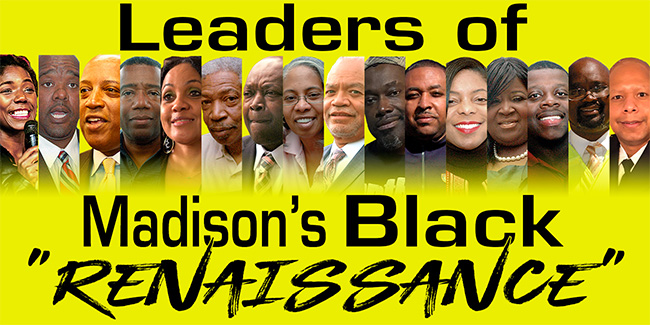
Overture Center for the Arts is proud to be a partner and sponsor of Roar Productions’ independent film, Leaders of Madison’s Black Renaissance. The premiere of this documentary will be held tonight, Saturday, February 26, 7-9 pm in Capitol Theater. The event is free and open to the public. Tickets are still available.
For the first time in history, Madison, Wis.,
has the largest number of Black elected officials on its school board and city
council. Madison’s school superintendent is Black, as is its Police Chief,
District Attorney and County Sheriff. Blacks are leading multiple large
non-profit agencies and spearheading multi-million-dollar projects all over the
city. Blacks are leading in so many important areas and are launching so many
key initiatives that many people are calling this period a “Black Renaissance.”
This film introduces viewers to 40 of Madison’s most prolific leaders as they define what is happening in Madison and what it means to the city’s future. The film explores the innovation that Black leaders are introducing in many areas, ranging from education, to healthcare, to economic development and more. Is there really a renaissance occurring in Madison? Are Blacks positioned politically to make an undisputable difference in this city? These questions and more are discussed in this new dynamic documentary produced by retired Professor Dr. Chuck Taylor. Reserve your seat.
Kigeya and Gittens to lead Overture’s Community Advisory Council
April Kigeya, chair, and Cheryl Gittens, vice chair
Overture’s Community Advisory Council (CAC) is pleased to announce their new chair, April Kigeya, and vice chair, Cheryl Gittens.
April Kigeya
“I am excited to take on the role of chair of Overture’s Community Advisory Council,” said Kigeya. “I look forward to working with members of the council to continue to expand and deepen its impact and role in helping Overture achieve its mission. As a long-time resident of the Madison area, I am deeply committed to working to ensure we increase the access of visual and performing arts to our underserved and underrepresented communities. I am looking forward to the challenge and opportunity of leading the CAC for the coming year.”
Kigeya is running for election to the Dane County Board of Supervisors to represent the constituents of District 15. We are grateful for the expertise, skills, talents and love of the arts she brings to the leadership of our CAC.
Cheryl Gittens
“I joined the Community Advisory Council to help bridge relationships between the university, community and Overture Center,” said Gittens. “My interest in the vice chair role stems from my belief that Overture Center can be an organization that models high standards of equity, diversity and inclusion principles through its programming, workforce and audience. The CAC can serve as a conduit to increase Overture’s community relationships, visitor experience and internal culture. As an advisory committee member and leader, I can bring my organizational leadership experience into play as well as my community relationships, and my desire to advance health, well-being, social justice and a genuine commitment to supporting the arts and education.”
Employee Inclusion Council’s “Let’s Break to Educate” series features Fannie Lou Hamer
Employees will learn about and discuss the life and work of Fannie Lou Hamer on Thursday, March 3, starting at noon. The event includes a guided discussion related to voting rights, food insecurity, discrimination and segregation. Hamer’s work has been immortalized in a play that premiered at the Goodman Theater in Chicago, in short films and a multitude of books and articles—yet most of us have never learned her name or about her trailblazing work. She also has connections to the Madison area!
From the PBS website:
“Is this America, the land of the free and the home of the brave?” With those words at the 1964 Democratic Convention, Fannie Lou Hamer changed the course of Civil Rights forever. By working in the cotton fields of Mississippi from the age of six, Fannie Lou Hamer was keenly aware of the racial injustices that forced her family to labor so much while earning so little. Encouraged by her participation in groups like the Student Nonviolent Coordinating Committee, Fannie Lou Hamer devoted herself to voter enfranchisement and increasing Black political representation. Her efforts would mobilize thousands of Black people to register to vote and inspire her historical run for Senate.
Fannie Lou Hamer’s America explores and celebrates the lesser-known life of a Mississippi sharecropper-turned-human-rights-activist and one of the Civil Rights Movement’s greatest leaders. Through the layering of audio recordings and archival video footage of her powerful speeches, soul-stirring songs and impassioned pleas for equal rights, Fannie Lou Hamer tells her extraordinary story in her own words.”
If interested, view the PBS documentary “America Reframed: Fannie Lou Hamer’s America,” executive produced by Hamer’s grandniece, Monica Land. Viewing options (run time 1 hour) include: Monday, Feb 28, 7pm & 11pm and Thursday, March 1, 2pm
In addition, here are other reference materials about Fannie Lou Hamer:
Article: Chicago Tribune Article
Article: Fannie Lou Hamer | American Experience | Official Site | PBS
Article: How Fannie Lou Hamer Taught a Black Non-binary Activist about Radical
Change
Video: Fannie Lou Hamer: Stand Up (26:46)
Video: Meet the Makers: panel discussion
of the women involved in the making of this film (1:13)
Overture’s Cabaret Series returned with Nicholas Rodriquez on Feb 10

Nicholas Rodriguez
“A show that seemed a form of liberation and joy for me as a queer Latina from Texas was Nicholas Rodriguez - All is Fair in Love...,” said Ida Balderrama-Trudell, Overture’s Director of Equity and Innovation.
This show was part of Overture’s Cabaret Series, which has been on hiatus since 2020. Guests were invited into the historic Capitol Theater to sit on stage, eat an amazing gourmet meal and experience an intimate concert. This particular crooner created the show just for Overture Center, and it has taken two years for him to be able to join us in Madison to perform it.
Read this article about Nicholas Rodriguez in Madison 365.
“I thoroughly enjoyed Nick’s performance and was moved more than once during the show,” said Balderrama-Trudell. “The highlight for me though (after his rendition of Roberta Flack’s The First Time Ever I Saw Your Face) was meeting and talking with another queer Texan who grew up at the same time as me, being introduced to the arts by his family, similar to my own experience that I also shared with Madison 365. Seeing someone who looks like me be successful and thriving in the arts is what my new role is all about. I am deeply committed to making the arts accessible to all, continuing to build relationships in and around the Madison community and supporting the work of equity of innovation at Overture, and I can’t wait to experience what the future has in store.”
Cocktails with Tim & Karra with special guest Ida Balderrama-Trudell:
Connections
between the Broadway musical Hairspray
and the Civil Rights Movement
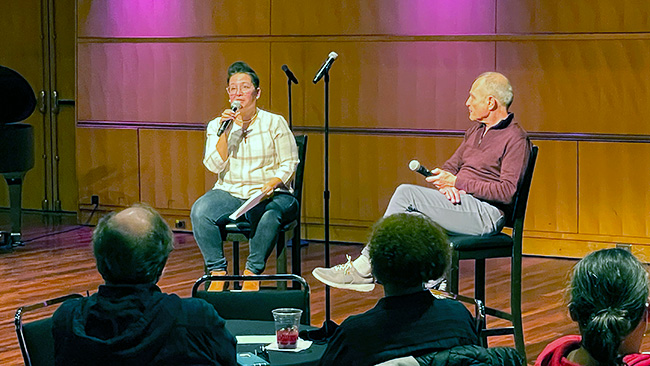
Ida Balderrama-Trudell and Tim Sauers talk about racial integration and segregation.
In my inaugural edition of the Equity & Innovation Newsletter, I wanted to share some events I attended in the last month, introduce myself and tell you about my role at Overture Center as the Director of Equity and Innovation. It is truly an honor to be working and learning alongside Dr. Holmes and colleagues.
I was pleased to be invited and attend “Cocktails with Tim & Karra” earlier this month as my first official event with Overture Center since starting in mid-January. “Cocktails with Tim & Karra” is an event open to Broadway Club members, which includes a peek into upcoming shows, current Broadway news, discounts, trips and other extras for fans of Broadway. This month’s event highlighted themes from “Hairspray,” running February 22-27.
During our time together at the event, we talked about racial integration and segregation occurring in the 1960s (when the musical is set) and the parallels of that time to current events in Madison and around the United States. The courage of leaders connected to the Civil Rights Movement of the past, and in more recent times, continues to inspire and lay the foundation for the change we truly wish to have in the world. Considerations of equity, diverse representation and inclusion in the arts were key themes and connect directly with Overture’s vision to “create extraordinary experiences” for all.
In addition to elements of race and ethnicity, we chatted about body positivity (by way of 16-year-old character Tracy Turnblad) and the critical importance of accurate portrayals of characters on stage, such as Edna Turnblad (Tracy’s mom), played by drag queen Nina West, originally reprised by Divine. Representation in all its glorious forms is necessary for true liberation. As the late Bell Hooks said, “To be truly visionary, we have to root our imagination in our concrete reality while simultaneously imagining possibilities beyond that reality.”
Ida Balderrama-Trudell, M.S. (she/her)
Director of Equity and Innovation
“Kids in the Rotunda” performances went live in February
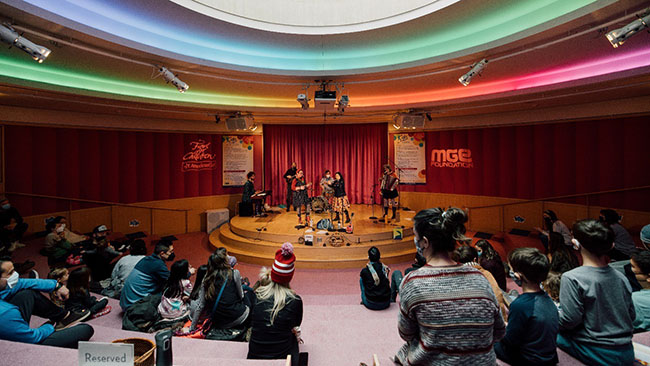
Families enjoyed Music with Junebug and Friends on Saturday, Feb 19.
After an extended hiatus due to the pandemic, Kids in the Rotunda, Overture Center’s family-friendly Saturday arts performance series, returned on January 8 with virtual shows featuring a range of diverse groups, such as Black Star Drum Line’s Urban Arts Showcase and Yid Vicious (Klezmer music). As the omicron wave eased, in-person programming for the series returned to Overture Center on February 12.
“We know that Kids in the Rotunda provides a powerful way for families to connect with each other and experience arts and cultural groups they would otherwise not be able to access,” said Overture’s Director of Education and Community Engagement Alanna Medearis. “In particular this year, we intentionally focused on increasing the diversity and representation of Black youth and AAPI people and cultures with the inclusion of new high-quality performance groups like Drum Power and Blue Willow Chinese Dance.”
All virtual performances and a full list of the season can be found on the Kids in the Rotunda web page.
This season, Overture Center also made some additional changes to the series to ensure it was more accessible and, when in person, created a safe, welcoming environment. The series will continue to offer livestreams of performances once a month for those unable to attend in person, and ASL interpretation is offered for all virtual performances and one live performance each weekend. To welcome families back to live performances, Overture also introduced new Kids in the Rotunda coordinator and children’s musician Henry Alloway. Additional safety changes due to the pandemic include live seating updates, self-distanced “blankie seating” and offering two performances instead of three to allow more time to clean the space.
As with other programming, all who enter the building must follow our COVID-19 health and safety policies (overture.org/health). Visit the Kids in the Rotunda Facebook page or Overture’s Kids in the Rotunda web page for more updates related to the program.
In case you missed it
Our friends at the University of Wisconsin–Madison have been celebrating Black History Month throughout February. We’ve chosen a few highlights below related to the arts. For a full list of events visit wisc.edu/black-history.
- Dr. LaVar Charleston’s (Deputy Vice Chancellor, Vice Provost, & Chief Diversity Officer) message
to UW and the Madison community in honor of Black History month was a spoken-word
piece, sharing “What Black History Month Means to You.” Other Black
faculty/staff also shared their voices, including Chris Walker (Professor
and Director of UW-Madison Division of the Arts), whose annual celebration of
dance, “Moonshine,” was performed earlier this week.
- Don’t miss the Black History Month keynote, “An Evening with Ruth Carter,” on Sunday, Feb. 27 at 7 p.m. Carter is a 2019 Academy Award winner for “Best Costume Design” for her work on “Black Panther,” making history as the first African American to win in that category.
School of Madison Ballet welcomes new director Jacob Ashley
"Seeing the students’ wonder for ballet, their love and joy to grow in what they’re doing, knowing they’re dedicated and want to learn, that’s what inspires me," says Ashley. “I want to build SMB’s prestige as this city’s school for ballet and continue our work to provide the best access to ballet in Madison.”
A Chicago native, Ashley began his dance training in 2002 at the Chicago Academy for the Arts. He studied at Columbia College Chicago's modern dance program, later becoming an apprentice for Gus Giordano Dance and Luna Negra Dance Theater and attending Ballet Chicago under the tutelage of Daniel Duel and Patricia Blair. As a guest artist, Ashley has danced with such companies as the West Indian Folk Dance Company, Momenta, Ballet Chicago, Chicago Festival Ballet, Dallas Opera, Houston Grand Opera, Les Ballet Grandiva, Madison Ballet, Lyric Opera of Chicago, Joffrey Ballet of Chicago and San Diego Opera.
Ashley has danced with Madison Ballet for 15 years and has been a beloved faculty member at the SMB since 2018, where his lessons have been instrumental to the development of students ranging from four years old to pre-professional. Recently, Ashley was highlighted as a choreographer in Madison Ballet’s first-ever dance film production, Lift Every Voice, a project which began in 2021 to help amplify the works of emerging local choreographers of color. The project, which includes professional and SMB student performers, continues this February with Lift Every Voice 2022, where Ashley will premiere another brand-new work with filmmaker John Urban of Big Dreamers United.
“Jacob is a constant source of encouragement and inspiration for his fellow dancers and the students of the School of Madison Ballet. His commitment to the personal growth and artistry of each individual student will no doubt permeate the whole organization and be at the center of his vision for our educational programs,” says Madison Ballet CEO Jonathan Solari.
Madison Ballet is a pillar of the Dane County creative community, dedicating itself to providing "ballet without boundaries" by breaking down barriers to the artform throughout all facets of the organization. Madison Ballet gives back to the community, participating in local arts events, providing performance tickets free of charge to area nonprofits and granting scholarships to SMB students. The vibrant arts company continues their philanthropic mission as they grow, thrive and celebrate 40 years of inspiring Madison with the magic of ballet.
Learn more about Madison Ballet at and the School of Madison Ballet.
Coming Soon: Alvin Ailey American Dance Theater, Tuesday, March 1
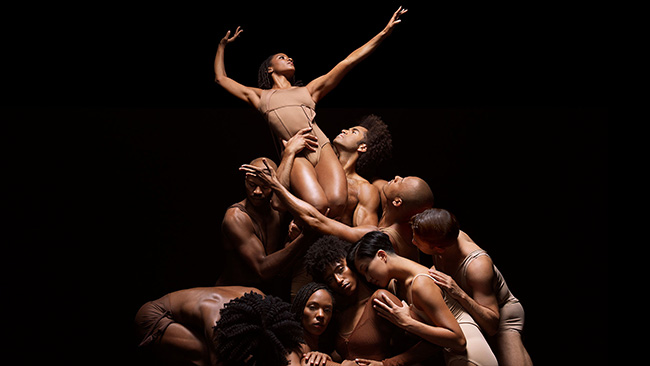
Great seats are still available for Alvin Ailey American Dance Theater on March 1.
Connecting with audiences is at the heart of the Ailey experience, so Alvin Ailey American Dance Theater’s much-anticipated return is reason to rejoice. Revel in the passion these dancers bring to each piece, the skill and artistry no pandemic can diminish and the communal joy of live performance.
Alvin Ailey American Dance Theater grew from a now-fabled performance in March 1958 at the 92nd Street Y in New York City. Led by Alvin Ailey and a group of young African-American modern dancers, that performance changed forever the perception of American dance. The Ailey company has gone on to perform for an estimated 25 million people at theaters in 48 states and 71 countries on six continents – and has reached millions more online and through television broadcasts.
The company will present a program of contemporary works by Artistic Director Robert Battle as well as the beloved Revelations, a universal anthem of resilience that resounds anew today.
Meet the artist! Come early for a short presentation followed by an informal Q&A session with Associate Artistic Director Matthew Rushing of Alvin Ailey American Dance Theater. The session will begin at 6:30pm on Rotunda Stage. Capacity is limited.
International Festival 2022 returns in-person on Saturday, March 19
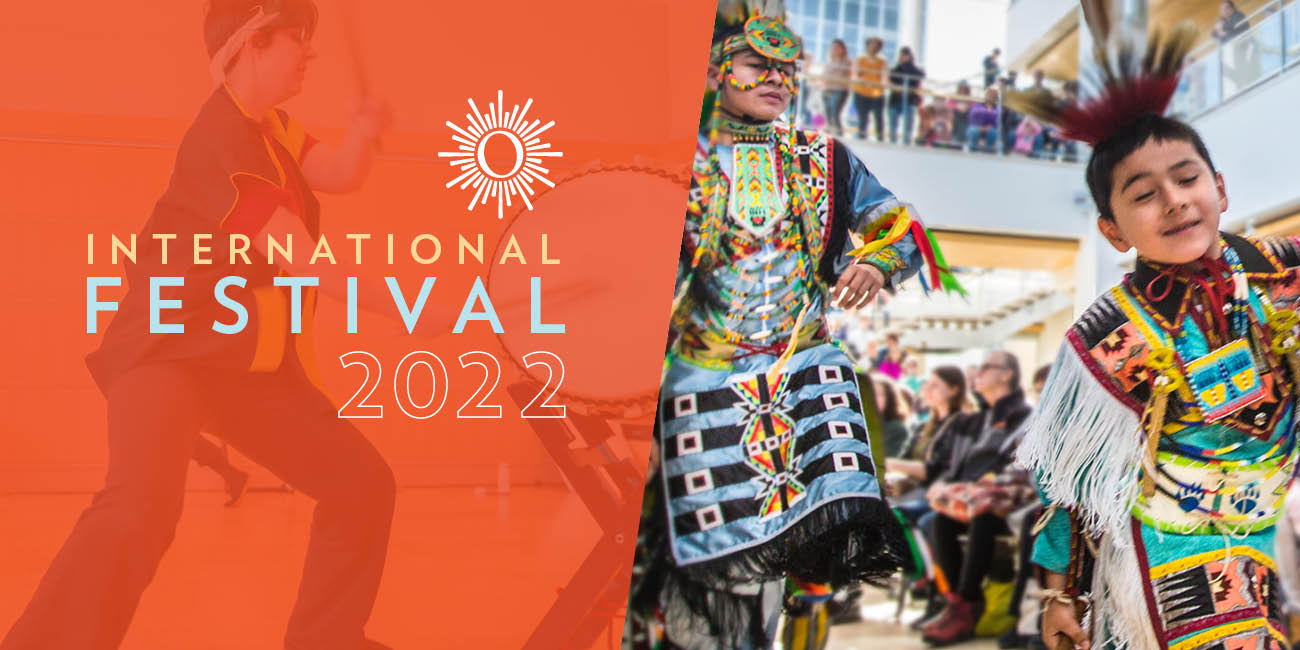
Join us as International Festival returns live, in-person at Overture Center! Together, we’ll celebrate the rich cultural heritage and diversity of our community. At the event, you can enjoy any of 30 FREE performances throughout Overture by artists who call Dane County home. You can also taste cuisines from around the world in the International Café, browse stunning arts and crafts available for purchase in the International Market and learn about many local organizations and businesses with global connections.
One new performance group to look out for at the festival is Son del Atlantico, an Afro-Colombian music band that plays the genres of traditional Colombian music, including the rhythms of cumbia, chance, cumbion, vallenato and porro fused with funk, rock and reggae.
To increase accessibility of the event for those unable to attend in person, select performances will be livestreamed throughout the day on Overture’s Facebook page.
Please note, all who enter the building must follow our COVID-19 health and safety policies. View policies at overture.org/health.
For the second year, schools will be invited to participate in a special virtual International Festival, designed specifically for teachers and afterschool staff to use in their classrooms to celebrate the diverse cultural traditions of people in Dane County. New this year, an International Festival resource guide is being developed with lesson ideas, curricular connections and correlating standards. Schools will also have access to 23 virtual cultural performances, cooking demonstrations, discussions and more via an online map. Last year 100 schools attended, and Overture’s Education and Engagement team is working to expand that to more participating groups this year.
UW-Madison Office of Multicultural Arts Initiatives presents Line Breaks Hip Hop Festival
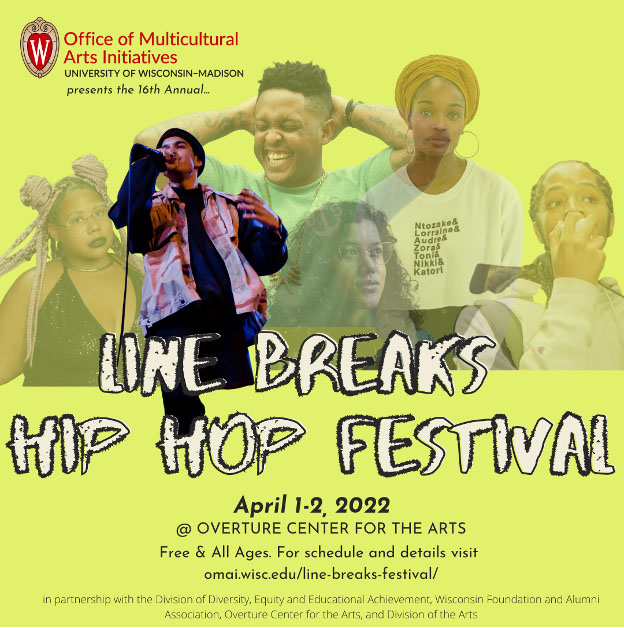
The Office of Multicultural Arts Initiative’s (OAMI) Line Breaks Hip Hop Festival consists of performances, lectures and discussions by First Wave students and professional artists engaging with the Madison community, on and off campus. Inaugurated through OMAI’s sponsored Marc Bamuthi Joseph Arts Institute Residency in the spring of 2007, the Line Breaks project culminated in a final performance of student work called “Just Bust!” – an event, which has evolved into our monthly open mic, now running for 15 years. Click here for festival programming details.
Hip Hop where it belongs
Line Breaks Festival brings the top new aesthetics
in contemporary hip hop and interdisciplinary performance art to the UW-Madison
campus and the surrounding community. The festival has evolved into a space for
the investigation of contemporary American culture through the lens of hip-hop
performance. Line Breaks is now one of the largest hip hop-centered
performance festivals in the Midwest and continues to be a space for the
cultivation and presentation of independent and collaborative work by First
Wave artist-scholars. Here, unique responses to common human experiences are
explored. The narratives, myths and legends, specific to these diverse
communities, are unearthed, distilled and presented in an environment that
encourages discussion and continued investigation.
The only way to guarantee legitimate tickets is to buy them directly from Overture Center at overture.org, by phone at 608.258.4141, or in person at the Overture Center Ticket Office. Learn more about safe ticket buying.
Update your email preferences here.
If you no longer wish to receive our updates, please click to be removed.
Please do not respond to this email. Click here if you are having trouble viewing this email.
Overture Center for the Arts
201 State Street, Madison, WI 53703
608.258.4141
© 2022 Overture Center for the Arts. All rights reserved.


